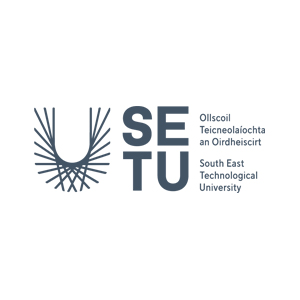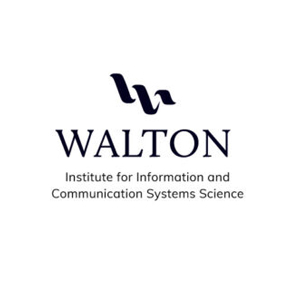SETU About
South East Technological University
IrelandQCI > The Consortium > SETU
 SETU is a truly regional university, with campuses across the south east in Carlow, Waterford and Wexford, as well as a presence in Kilkenny and Wicklow. Bringing together over 50 years of experience in higher education, research, innovation and stakeholder collaboration, today SETU serves over 18,000 students and employs over 1,500 staff with ambitions to grow over the next 10 years.
SETU is a truly regional university, with campuses across the south east in Carlow, Waterford and Wexford, as well as a presence in Kilkenny and Wicklow. Bringing together over 50 years of experience in higher education, research, innovation and stakeholder collaboration, today SETU serves over 18,000 students and employs over 1,500 staff with ambitions to grow over the next 10 years.
The university’s research performance already shines in Ireland and internationally and provides a strong platform for future development. SETU brings together over 550 researchers, several research centres and four Technology Gateways and will expand the range and quality of research to meet the needs of the south east. Over the five years from 2016 to 2020 alone, researchers from SETU have successfully attracted over €95m in research funding from a variety of European and national funding agencies, state bodies and industrial partners.
 A foundation of ICT research and development activity in the South East, Walton Institute has been operating for over 25 years in the West Campus of South East Technological University (SETU). Walton undertakes cutting edge research blending fundamental science with real world commercial applications for today’s society becoming a major driver in the emergence of a telecommunications industry in the South East of Ireland.
A foundation of ICT research and development activity in the South East, Walton Institute has been operating for over 25 years in the West Campus of South East Technological University (SETU). Walton undertakes cutting edge research blending fundamental science with real world commercial applications for today’s society becoming a major driver in the emergence of a telecommunications industry in the South East of Ireland.
Walton employs over 80 research scientists and engineers, graduated over 21 PhD Students and manages an active international network in excess of 700 partners from industry, academic and research institutes spread across 35 countries worldwide. In 2020, Walton Institute paved the way for WIT to be ranked above all Institutes of Technology combined in European ICT research funding.
The organization is structured into dedicated research divisions, each focusing on fundamental ICT domains such as wired and wireless communication infrastructures, artificial intelligence and autonomous systems, pervasive sensing systems, augmented / virtual reality, data analytics and machine learning, Internet of Things, quantum and satellite communication, biological nano communication, and mobile application development. Within these domains, Walton produces enabling technologies which can be applied to multiple industries such as health, agriculture, retail, tourism, finance, transport and entertainment via four research divisions:
- Emerging Networks Lab (ENL) focuses on challenges relating to the evolution of the communications networking and service technologies that will see widespread deployment in the next 10 years.
- Programmable & Autonomous Systems (PAS) seeks to research, develop and commercialise techniques, tools and algorithms so citizens can benefit from the new digitally connected world.
- Mobile Ecosystem & Pervasive Sensing (MEPS) spearheads research in areas such as artificial intelligence, pervasive sensing, immersive technologies, electronic textiles and wearables, and bio-nano molecular communications.
- Research Infrastructure & Testbeds (RIT) pursues research in its own areas such as satellite communications and quantum communications, as well as actively engages in the research and development of facilities, lab spaces, testbeds, other bespoke ICT systems, and providing access to, or generating, datasets.
